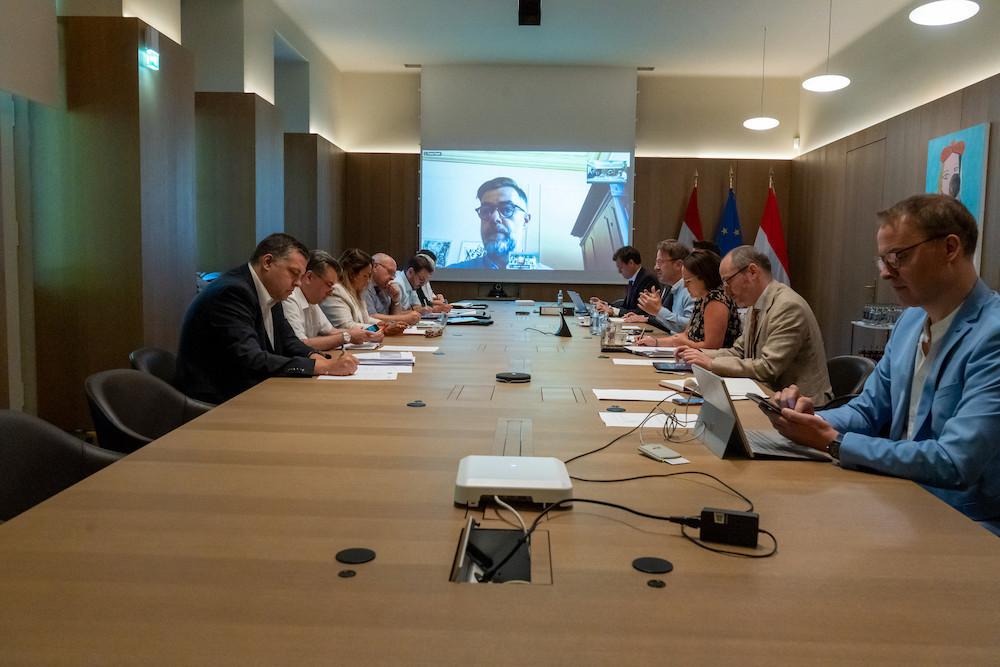Discussions on the form, not substance, took place this Thursday morning during the bilateral meetings between the government and social partners. In the end, the positions of both sides were not discussed. The aim was to establish an agenda and a method for the next few months with a view to a tripartite meeting to be held in autumn due to the fact that an index threshold would be crossed by the end of the year.
However, the meetings were "constructive", said LCGB President . In fact, the government and the unions have agreed to meet frequently, every two to three weeks, in order to prepare well in advance for the negotiations that will take place during the tripartite. It will be a question of “taking the necessary time” and carrying out an in-depth and quantified analysis of the situation.
“This is a change from the tripartite meetings of recent years,” says OGBL President , who sees “positive” aspects in this increased cooperation. She is also pleased that this tripartite will not be limited to a debate on indexation, but will also address the various ways of supporting businesses--with more targeted aid--and households, whose purchasing power is in decline.
The government has also committed itself to providing the necessary data to establish an accurate picture. “The CGFP welcomes the willingness of the tripartite coalition to present concrete and reliable data this time,” the union said in a statement.
The government also received the UEL, which came with a delegation representing employers from all economic sectors. They discussed the current situation, but the revised Statec figures will be needed to allow a more detailed analysis. As a result, “questions have arisen, but remain unanswered for the moment,” explained UEL President . He is optimistic for the future: “We want to have a sound basis for negotiations, for everyone to agree on the figures and there to be a common understanding,” he explained. “And between responsible partners, we will find an agreement--even if there is still a risk that some want to play a political game.”
Reviewing the March tripartite agreement
Although the concrete issues were not discussed, notably indexation, which is a subject that divides the various parties, the OGBL nonetheless reiterated its opposition to “the manipulation of the index”. The CGFP said that since the situation had changed since March and the first tripartite agreement, “the meter will have to be reset to zero during the expected tripartite negotiations.”
The government has not submitted any proposals on indexation either. Deputy Prime Minister (déi Gréng), who did not take part in the bilateral meetings, gave some hints on Wednesday on : one option could be to trigger the July index at the moment when the end-of-year index bracket is crossed, and then to pay the latter in April 2023. Another option would be to pay the July index in April 2023, then the end-of-year index a few months later.
In any case, the tripartite agreement concluded in March will have to be revised, as it is no longer adapted to the current situation and to higher than expected inflation, he noted. It remains to be seen whether his coalition partners are on the same line.
These issues will be discussed at the next bilateral meetings between the government, employers and employee representatives, which will take place on 14 September. Inflation will be at the heart of the debate, based on updated data from Statec, which will have revised its forecasts by then.
in French by Paperjam and translated for Delano.
